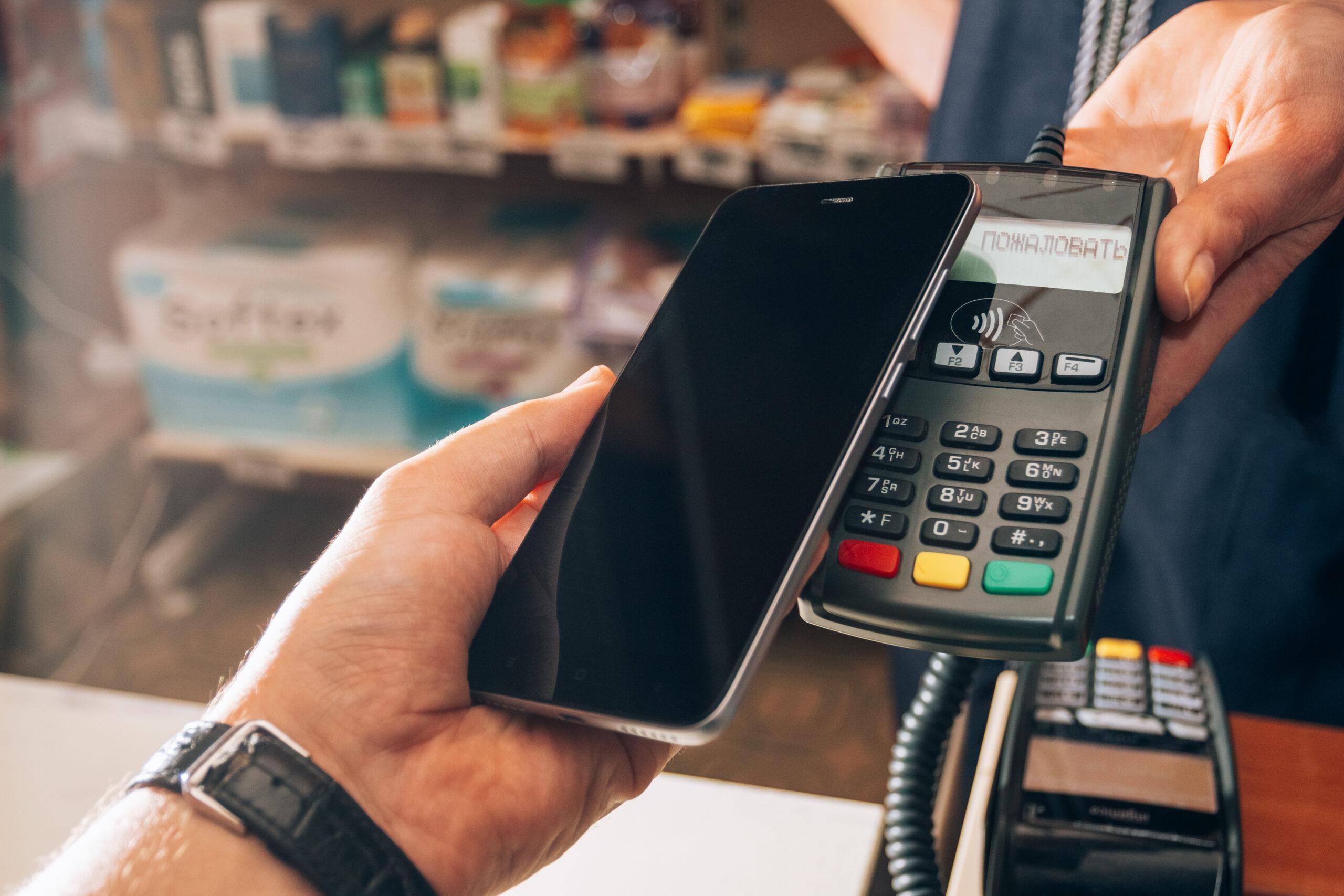MENU
Starting a Business
- Best Small Business Loans
- Best Business Internet Service
- Best Online Payroll Service
- Best Business Phone Systems
Our Top Picks
- OnPay Payroll Review
- ADP Payroll Review
- Ooma Office Review
- RingCentral Review
Our In-Depth Reviews
Finance
- Best Accounting Software
- Best Merchant Services Providers
- Best Credit Card Processors
- Best Mobile Credit Card Processors
Our Top Picks
- Clover Review
- Merchant One Review
- QuickBooks Online Review
- Xero Accounting Review
Our In-Depth Reviews
- Accounting
- Finances
- Financial Solutions
- Funding
Explore More
Human Resources
- Best Human Resources Outsourcing Services
- Best Time and Attendance Software
- Best PEO Services
- Best Business Employee Retirement Plans
Our Top Picks
- Bambee Review
- Rippling HR Software Review
- TriNet Review
- Gusto Payroll Review
Our In-Depth Reviews
- Employees
- HR Solutions
- Hiring
- Managing
Explore More
Marketing and Sales
- Best Text Message Marketing Services
- Best CRM Software
- Best Email Marketing Services
- Best Website Builders
Our Top Picks
- Textedly Review
- Salesforce Review
- EZ Texting Review
- Textline Review
Our In-Depth Reviews
Technology
- Best GPS Fleet Management Software
- Best POS Systems
- Best Employee Monitoring Software
- Best Document Management Software
Our Top Picks
- Verizon Connect Fleet GPS Review
- Zoom Review
- Samsara Review
- Zoho CRM Review
Our In-Depth Reviews
Business Basics
- 4 Simple Steps to Valuing Your Small Business
- How to Write a Business Growth Plan
- 12 Business Skills You Need to Master
- How to Start a One-Person Business
Our Top Picks
10 Reasons Why Small Businesses Should Use Affiliate Marketing
Table of Contents
Marketing your small business involves testing, tweaking and optimizing your website and creating campaigns to encourage your customers to act – all while maintaining a solid return on investment (ROI). Affiliate marketing is a simple, effective way to scale your marketing efforts. Affiliate marketing involves partnering with other individuals or companies to promote your products or services.
We’ll share 10 reasons businesses should consider affiliate marketing and explain why it’s an excellent strategy for increasing sales and online revenue.
What is affiliate marketing?
Affiliate marketing is the process of choosing and working with other people or businesses that will market your products and send traffic to your website. You pay those people or businesses, called affiliates, a commission on each conversion.
Affiliate marketing is an excellent tactic for small businesses because you pay commissions on sales only after they occur. Your affiliates promote products and services they enjoy while earning a percentage of the profit from each sale they make.
Common affiliate marketing sources include influencers, bloggers, paid search-focused microsites, email lists and large media websites.
10 reasons to use affiliate marketing
Consider the following 10 reasons your small business should use affiliate marketing:
1. Affiliate marketing helps you track sales progress.
Affiliate marketing programs offer real-time online tracking, so you know precisely when a visitor clicks a link and goes to your website. Affiliate platforms also provide metrics on impressions, clicks and sales, and offer custom lead conversion tools like form submissions and email sign-ups.
All activity is trackable, giving you crucial information on specific KPIs to help you see how your affiliate marketing strategy translates into online revenue and benefits your business.
2. Affiliate marketing enhances promotions.
Affiliate marketing lets you supplement your promotions with affiliate links. For example, if you plan to launch a product just before Christmas, you can send that product information to your affiliates so they can create buzz around your product and include your promotions on their websites.
Your online promotional campaign may include a product launch countdown where you offer a promo code for a discount on a different product each day until launch.
You can also promote a product launch online by hosting a Facebook Live Q&A where you give a behind-the-scenes look at the product, introduce your team and answer questions.
3. Affiliate marketing provides social proof.
Affiliate marketing is one of the most potent ways to incorporate social proof into your online business.
Social proof is the idea that customers will conform to the actions of others if they believe it is the right choice. Social proof exists all around us, but it’s especially powerful in the form of customers’ reliance on product reviews, suggestions and testimonials. Good customer reviews are particularly compelling. In fact, according to a BrightLocal survey, nearly 79 percent of customers say they trust reviews they read online as much as personal recommendations.
An affiliate relationship shows online customers that another business or an influential person believes in your product or company so much that they are willing to endorse it themselves.
4. Affiliate marketing uses a performance-based payment structure.
Affiliate marketing differs from traditional marketing in that you pay your affiliate only when a sale is made. If the affiliate’s work is not producing sales, you don’t have to pay them. You can also shift your focus to other affiliates with audiences more interested in your product or business.
Most e-commerce affiliate commission rates are around 5 percent to 15 percent, so you can enjoy a return on ad spend (ROAS) of 10-to-1 or higher. This cost-effective digital marketing strategy guarantees a return because you set your own commission rates.
5. Affiliate marketing supports online business scalability.
When you incorporate affiliate marketing into your online business, your affiliates act as an indirect sales team. They can promote your products on their websites and generate more revenue for your small business because they engage with their audiences daily.
Here are a couple of tips to scale your affiliate’s reach and create more revenue:
- Diversify your affiliates. No one affiliate should bring in more than 25 percent of your affiliate revenue. Use coupon sites, customer loyalty sites and other content sites to ensure you don’t become too reliant on one affiliate.
- Know your competition. Do your due diligence to find out which affiliate programs or influencers your competitors use and what their commission rates are. When you make your brand easy to work with and offer a solid commission, affiliate bloggers and businesses are more inclined to work with you.
6. Affiliate marketing supports website sustainability.
One of the top reasons websites fail is lack of traffic, which calls for a robust SEO strategy. Use affiliates to create brand awareness and supplement with strong social media engagement to help build your website traffic.
7. Affiliate marketing provides a strong ROI.
Affiliate marketing has an unusually high digital marketing ROI. This strategy can increase average order value, per-customer order average and average customer revenue.
8. Affiliate marketing increases sales.
Building relationships with quality affiliates takes time and guidance. However, if you’re committed to putting in the work, your time and effort will pay off. The more exposure your products and services get, the higher your sales will be; affiliate marketing is a great avenue to achieve this.
9. Affiliate marketing lets you leverage different skill sets.
Given the large pool of affiliates available, you’ll have access to an extensive collection of varying skill sets. Your myriad affiliate options increase the chances of high product sales because each seller uses their particular skills to attract different audiences.
10. Affiliate marketing opens up new marketing strategies.
Never use only one form of marketing. Affiliate marketing provides extra protection against this mistake because affiliates employ various advertising techniques to cover every possible avenue.
How does affiliate marketing work?
An affiliate marketing campaign requires a partnership between a brand (sometimes referred to as the seller or the product creator) and the affiliate. The ultimate goal is to increase sales.
The process is simple:
- The brand will share information about its product or service with the affiliate.
- The affiliate will act as a brand advocate and promote your offering to their audience through social media, a blog or other channels.
- If consumers want to buy the product or service, they can do so through an affiliate link that directs them to the seller’s website.
- The affiliate marketer will receive a portion of any sales obtained via the affiliate program.
Here’s an example: Say a beauty product startup wants to branch into affiliate marketing to promote a new eyeshadow line. The brand may partner with an influencer known for their makeup tutorials and send them a free eyeshadow kit for use in the campaign. The influencer can then post a TikTok or YouTube makeup tutorial, share information about the brand, and encourage viewers to use the affiliate link to make a purchase.
Influencers can help your business grow by promoting your product organically, improving your SEO and increasing your brand reach.
How to create a powerful affiliate marketing strategy
Affiliate marketing is a powerful tool if conducted thoughtfully. Follow these tips to maximize your ROI:
- Consider your audience. You should tailor any product or service (and associated marketing campaigns) to the interests and needs of your target audience. Seek out affiliates whose content can reach your ideal customer.
- Optimize your website. When consumers visit your website via affiliate links, you want to give them a positive user experience. Ensure all information is easy to find, and streamline your checkout process to avoid shopping cart abandonment.
- Build relationships with affiliates. Attract and retain affiliate partnerships with strong incentives, personalized messaging, relevant resources and ongoing support. Establishing trust and maintaining open communication will go a long way in nurturing positive long-term relationships.














